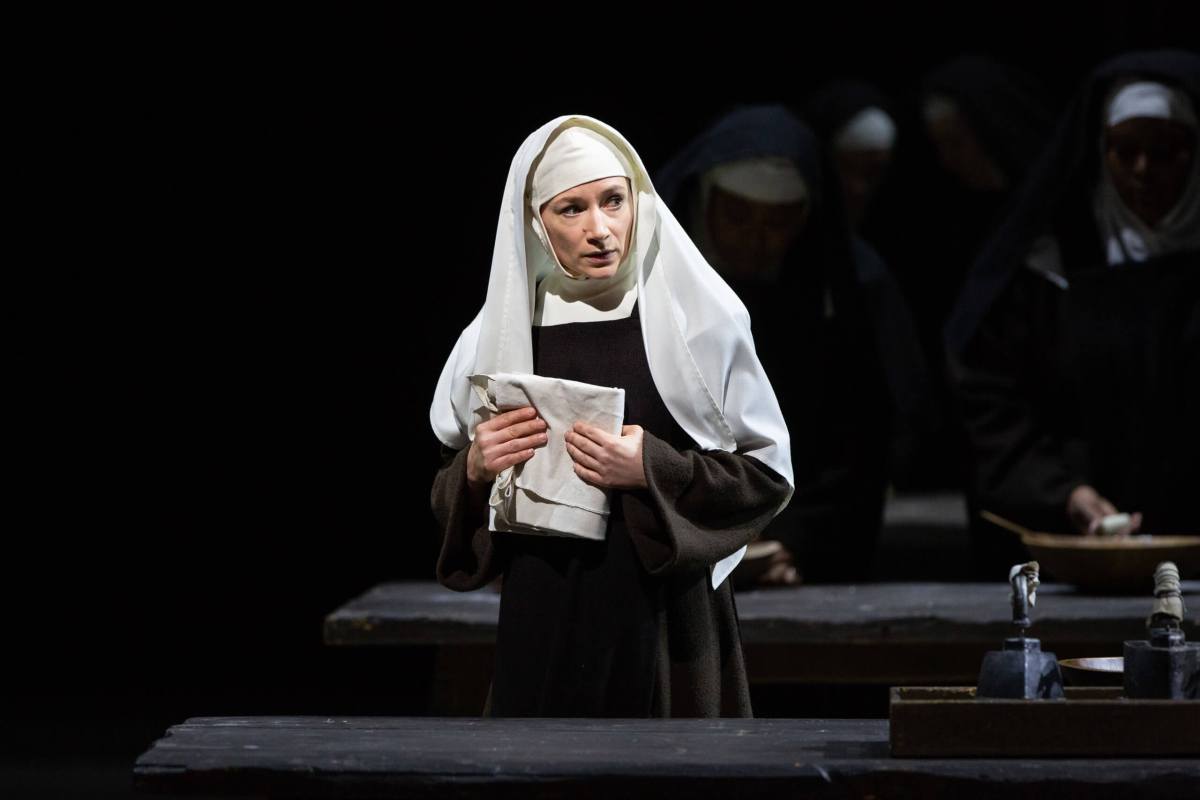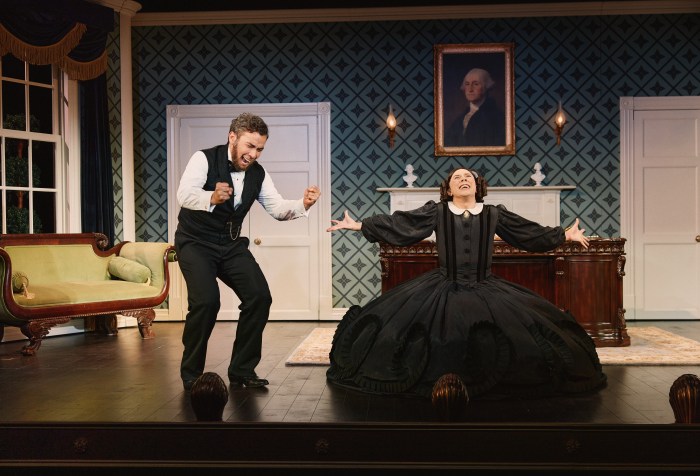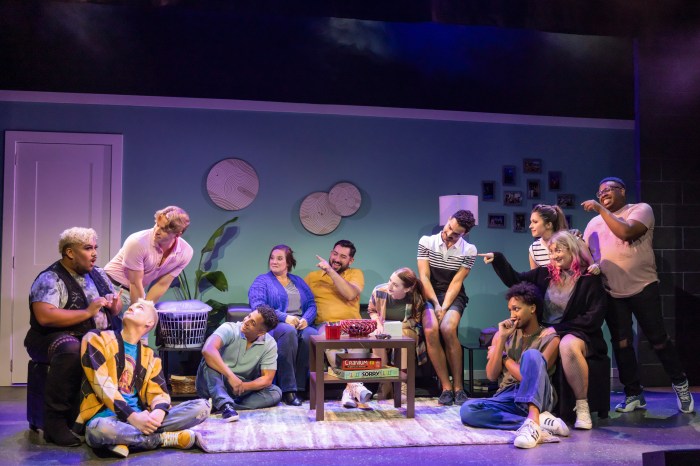The Cleveland Orchestra’s impressive January 18 Carnegie Hall concert of music by Schubert and Alban Berg showcased the ensemble’s renowned string tone and smoothly blended sound. Music Director Franz Welser-Moest’s most adventurous decision was to intermix the movements of Schubert’s ultrafamiliar “Unfinished” Symphony with Berg’s 1928 orchestrated version of three parts of his “Lyric Suite,” positing a familial relation among different Viennese musical generations.
Each piece showcased scrupulous ensemble and clarity, but unbridled passion — on the menu of the Berg, especially — is not in Welser-Moest’s wheelhouse. The approach worked better in Schubert’s posthumously premiered “Mass #6,” which has a kind of Beethovenian solemnity alongside hints of Schubert’s esteem for Italian bel canto. Most of the sacred setting is for chorus and Lisa Wong’s choristers proved a marvel of precision and dynamic shading. The impressive soloists had too little to do, but the exquisite “Et incanatus est” for soprano and two tenors — a very rare phenomenon in vocal literature — sounded magical from pure-toned Joélle Harvey and two totally idiomatic but very different-timbred German lyric tenors, Julian Pregardien and Martin Mitterrutzner. One has to be grateful to Carnegie for showcasing so many fine visiting orchestras for New York’s delectation.
At this point, John Dexter’s 1977 “Dialogues des Carmélites” is the Met’s oldest staging, and one of its best. Francis Poulenc wrestled with this deeply death-haunted historical drama of the French Revolutionary Terror in response to the mortal illness of his lover Lucien Roubert; the rise of Nazism fueled its source material, a novel by Gertrud von Le Fort. The magnificent score — inspired, Poulenc truthfully said, by Monteverdi, Verdi, Mussorgsky and Debussy — took top honors at the January 15 season première under Bertrand de Billy’s knowing baton. Two debutants made excellent impressions: radiant soprano Sabine Devieilhe (Constanze) and clarion tenor Piotr Buszewski (Chevalier), both among the strongest exponents of these parts this production has ever witnessed. Alice Coote made her words clear and gave a harrowing, original reading of Croissy’s death scene. One would like to see Coote’s take on Mère Marie — a part oddly under-interpreted by out mezzo Jamie Barton, who had only loud top notes to offer until her last two scenes, when Marie came into focus. Vocally, Ailyn Pérez — the perhaps too likable Blanche — might, with her lovely upper register, have sounded stronger as Lidoine, sympathetically played but unevenly voiced by Christine Goerke. But Pérez anchored the show nicely and she and Buszewski aced the complex, moving scene between the aristocratic siblings drifting apart.
It proved fascinating to hear, 12 days later at Paris’ Salle Pierre Boulez at the Cité de la Musique, Poulenc’s final opera, the 1958 monodrama “La voix humaine,” setting a play by Jean Cocteau: an unmistakably gay mid-20th century imagining of a woman’s desperate final (pre-cell phone) communication with her departed lover. As with the part of Blanche, Poulenc crafted the vocal line and harmonies for his Folies Bergère-trained ‘muse’ Denise Duval. France’s leading lyric soprano, the excellent Véronique Gens, acted and sang the part with immense class and her trademark crystalline declamation, scrupulously accompanied by Alexandre Bloch and his exciting Orchestra National de Lille. The glorious 1913 Théâtre des Champs-Elysées hosted an equally compelling vocal performance the night before: a searing, memorably enacted and gorgeously sung and played traversal of Schubert’s “Winterreise” by Peter Mattei with David Fray: a breathtaking, unforgettable musical experience. The Swedish baritone, so stunning as Posa in the Met’s “Don Carlo” this Fall, leads the company’s upcoming new production of “Don Giovanni.” Any visitor to Paris interested in vocal music should check out these two venues’ rich offerings alongside those of the Opéra de Paris.
Back on the isle of Manhattan, on February 15 the New York Festival of Song celebrated its valiant co-founder and guiding spirit pianist Steven Blier’s 50th anniversary as a performer with a great concert at Merkin Hall justly termed “Amor.” One shared an outpouring of love and gratitude for Blier’s wide-reaching championing of eclectic song repertory (classical, theater, popular) and dynamic interpreters, plus the droll and knowledgeable commentary — ranging from deadpan camp to politically mordant — that enlivens NYFOS concerts.
Aided by fellow pianists Shawn Chang and the composer John Musto, Blier presented three fine singers in whose careers he’s been a key collaborator. The fantastic mezzo Lucia Bradford treated us to superbly inflected readings of songs by, among others, Duke Ellington and a queer trio of Black creators/interpreters: Gladys Bentley, Bessie Smith and Billy Strayhorn. Two bass-baritones performed: Federico De Michelis gave sensitive, intense life to several numbers from his native Argentina, accompanying himself on the guitar for the homesickness of Ariel Ramirez’s 1973 “Allá lejos y hace tiempo.” Not without an edge of generational irony, young William Socolof skillfully fielded complicated numbers by Weill and Sondheim. Plus, Blier hosted a guest star whom he described as a ‘vocal crush’: world-conquering tenor Michel Spyres, straight-out thrilling in songs by Rossini and Berlioz and the Mario Lanza chestnut “Be my love.” This proved a memorable, only-in-New York evening.



































